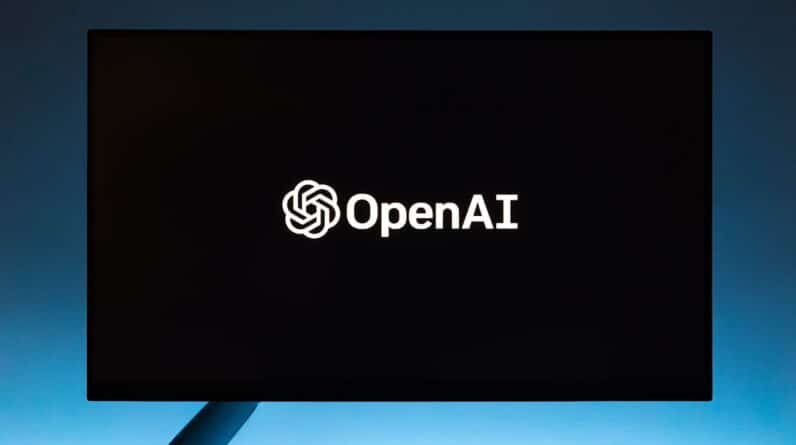As you step into the 21st century, you find yourself amidst an extraordinary transformation known as the AI revolution. This technological upheaval is not merely a trend; it represents a fundamental shift in how you interact with the world around you. Artificial Intelligence (AI) has permeated various aspects of daily life, from the smartphones in your pocket to the algorithms that curate your social media feeds.
The rapid advancements in machine learning, natural language processing, and robotics have made it possible for machines to perform tasks that were once thought to be exclusive to human intelligence. This revolution is reshaping industries, redefining job roles, and altering the very fabric of society. You may wonder how this revolution came to be.
The journey began with the development of computers capable of processing vast amounts of data at unprecedented speeds. As researchers delved deeper into the realms of AI, they discovered ways to teach machines to learn from experience, adapt to new information, and even make decisions. Today, AI systems can analyze complex datasets, recognize patterns, and provide insights that were previously unattainable.
This evolution has sparked a wave of innovation across various sectors, leading to enhanced efficiency, improved decision-making, and the creation of entirely new markets.
Key Takeaways
- AI is revolutionizing industries by automating processes, analyzing data, and making predictions.
- In healthcare, AI is improving diagnostics, personalized treatment plans, and drug discovery.
- AI is transforming finance and banking through fraud detection, risk assessment, and customer service automation.
- Transportation and logistics are benefiting from AI with route optimization, autonomous vehicles, and predictive maintenance.
- Retail and e-commerce sectors are being disrupted by AI with personalized recommendations, inventory management, and customer service automation.
- AI has the potential to revolutionize education and learning through personalized learning experiences and adaptive tutoring systems.
- Manufacturing and industry are being transformed by AI with predictive maintenance, quality control, and supply chain optimization.
- The ethical and social implications of the AI revolution include concerns about job displacement, bias in algorithms, and privacy issues.
AI’s Impact on Healthcare
Enhanced Diagnostic Accuracy
Imagine visiting a clinic where AI algorithms assist doctors in diagnosing diseases with remarkable accuracy. These systems analyze medical histories, lab results, and imaging studies to provide insights that can lead to earlier detection of conditions such as cancer or heart disease.
Personalized Treatment Plans
As a patient, you benefit from more personalized treatment plans tailored to your unique genetic makeup and lifestyle factors. This level of precision medicine was once a distant dream but is now becoming a reality thanks to AI.
Accelerated Drug Discovery
AI is revolutionizing drug discovery and development. Traditionally, bringing a new drug to market could take years and cost billions of dollars. However, AI accelerates this process by predicting how different compounds will interact with biological systems. By simulating these interactions, researchers can identify promising candidates more quickly and efficiently. As a result, you may soon see new treatments for diseases that currently have limited options, all thanks to the power of artificial intelligence.
AI’s Influence on Finance and Banking
In the financial sector, AI is reshaping how you manage your money and interact with financial institutions. From automated trading systems that analyze market trends in real-time to chatbots that provide customer service around the clock, AI is enhancing efficiency and accessibility in banking. You might find yourself using an app that employs machine learning algorithms to analyze your spending habits and offer personalized budgeting advice.
This level of financial insight empowers you to make informed decisions about your savings and investments. Furthermore, AI plays a crucial role in risk assessment and fraud detection. Financial institutions are leveraging advanced algorithms to analyze transaction patterns and identify anomalies that may indicate fraudulent activity.
As a consumer, this means greater security for your financial transactions and peace of mind knowing that your bank is utilizing cutting-edge technology to protect your assets. The integration of AI in finance not only streamlines operations but also enhances customer experiences, making banking more intuitive and user-friendly.
The Role of AI in Transportation and Logistics
Transportation and logistics are undergoing a significant transformation due to the integration of AI technologies. Picture yourself in a world where self-driving vehicles navigate city streets with precision, reducing traffic congestion and minimizing accidents. Autonomous vehicles are equipped with sophisticated sensors and algorithms that allow them to interpret their surroundings in real-time.
This innovation promises not only to enhance safety but also to revolutionize public transportation systems, making them more efficient and accessible. In logistics, AI is optimizing supply chain management by predicting demand patterns and streamlining inventory processes. As a consumer, you benefit from faster delivery times and improved product availability.
Companies are using AI-driven analytics to forecast trends and adjust their operations accordingly, ensuring that products reach you when you need them most. This level of efficiency not only enhances customer satisfaction but also reduces waste in the supply chain, contributing to more sustainable practices.
AI’s Disruption of the Retail and E-commerce Sectors
The retail landscape is experiencing a seismic shift as AI technologies redefine how you shop and interact with brands. Imagine walking into a store where intelligent systems recognize your preferences and suggest products tailored to your tastes. Retailers are leveraging AI-driven analytics to understand consumer behavior better, allowing them to create personalized shopping experiences that resonate with you on a deeper level.
E-commerce platforms are also harnessing the power of AI to enhance user experiences. From chatbots that assist you in finding products to recommendation engines that suggest items based on your browsing history, AI is making online shopping more intuitive than ever before. As you navigate through virtual aisles, these technologies work behind the scenes to ensure that your experience is seamless and enjoyable.
The result is a retail environment that not only meets your needs but anticipates them.
The Future of AI in Education and Learning
As you look toward the future, the role of AI in education is poised for remarkable growth. Imagine a classroom where personalized learning experiences are tailored specifically to your strengths and weaknesses. AI-driven platforms can assess your progress in real-time, adapting lesson plans to ensure that you grasp concepts at your own pace.
This individualized approach fosters a deeper understanding of subjects and enhances overall learning outcomes. Moreover, AI can facilitate access to education for individuals around the globe. With online learning platforms powered by artificial intelligence, students from diverse backgrounds can access high-quality educational resources regardless of their geographical location.
As you engage with interactive learning tools that utilize AI algorithms, you may find yourself immersed in an enriching educational experience that transcends traditional classroom boundaries.
AI’s Transformation of Manufacturing and Industry
In the manufacturing sector, AI is driving unprecedented levels of efficiency and innovation. Picture yourself in a factory where machines equipped with AI capabilities monitor production lines in real-time, identifying bottlenecks and optimizing workflows. This level of automation not only increases productivity but also reduces operational costs for businesses.
As a consumer, you benefit from faster production times and higher-quality products as manufacturers leverage AI to enhance their processes. Additionally, predictive maintenance powered by AI is revolutionizing how industries approach equipment upkeep. By analyzing data from machinery sensors, AI systems can predict when equipment is likely to fail or require maintenance.
This proactive approach minimizes downtime and ensures that production continues smoothly. As you enjoy products manufactured with precision and reliability, you can appreciate the role that artificial intelligence plays in enhancing industrial practices.
Ethical and Social Implications of the AI Revolution
While the benefits of the AI revolution are undeniable, it is essential to consider the ethical and social implications that accompany this technological advancement. As you navigate this new landscape, questions arise about privacy, job displacement, and algorithmic bias. The data-driven nature of AI raises concerns about how personal information is collected, stored, and utilized by companies.
You may find yourself questioning whether your data is being used responsibly or if it could be exploited for profit. Moreover, the potential for job displacement due to automation poses significant challenges for society as a whole. While AI creates new opportunities in various sectors, it also threatens traditional job roles that may become obsolete.
As you witness this shift in the workforce, it becomes crucial to advocate for policies that support retraining programs and ensure that individuals are equipped with the skills needed for emerging job markets. In conclusion, as you stand at the forefront of the AI revolution, it is clear that this transformative technology will continue to shape various aspects of life for years to come. From healthcare advancements to changes in education and industry practices, artificial intelligence holds immense potential for improving quality of life while also presenting challenges that require careful consideration.
Embracing this revolution means not only harnessing its benefits but also addressing its ethical implications to create a future where technology serves humanity’s best interests.
In a related article on AI and finance, experts discuss how artificial intelligence is revolutionizing the financial industry by improving efficiency, reducing costs, and enhancing customer experiences. The integration of AI technologies in banking, investment, and insurance sectors is transforming the way financial services are delivered and consumed. To learn more about the impact of AI on finance, check out this article.
FAQs
What is the AI revolution?
The AI revolution refers to the rapid advancement and integration of artificial intelligence technologies across various industries and aspects of daily life.
How is AI transforming industries?
AI is transforming industries by automating processes, improving efficiency, and enabling the development of new products and services. It is being used in areas such as healthcare, finance, manufacturing, and transportation.
What are some examples of AI applications in daily life?
AI applications in daily life include virtual assistants, personalized recommendations on streaming platforms, smart home devices, and autonomous vehicles.
What are the potential benefits of the AI revolution?
The potential benefits of the AI revolution include increased productivity, improved decision-making, enhanced customer experiences, and the ability to tackle complex problems more effectively.
What are the potential challenges of the AI revolution?
Challenges of the AI revolution include job displacement, ethical considerations, privacy concerns, and the need for regulations to ensure responsible and safe use of AI technologies.






